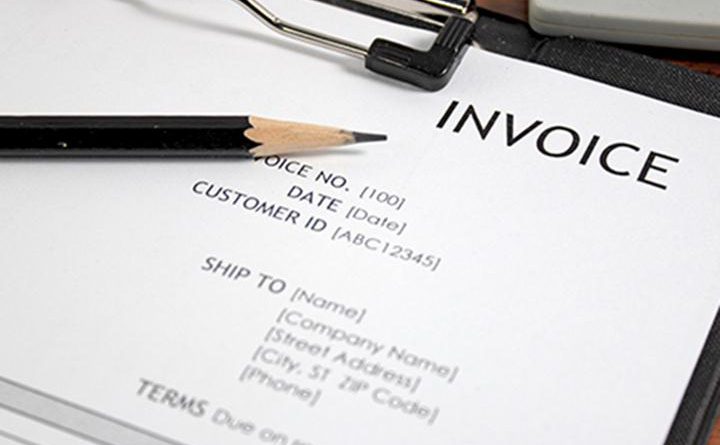Invoice Factoring Basics: How to Pick a Factoring Company
Waiting to get paid is one of the biggest frustrations for many businesses. Companies with seasonal business, lumpy cash-flow or long payment cycles can especially relate. Some customers demand generous terms or are simply slow payers (government and corporate clients come to mind). With factoring you can turn invoices into working capital that you may use to run your business, expand operations or hire new employees. Here’s what you need to know:
What is Invoice Factoring?
Invoice factoring is a financial transaction whereby a business sells its accounts receivable to a factoring company to free up their cash; usually to secure working capital to meet expenses, cover payroll or expand their sales. Invoice factoring lets you turn current, unpaid invoices, into cash. “Invoice financing”, “accounts receivable financing” and “receivables financing” are all interchangeable terms used for factoring. The generous terms requested by your clients means that invoices can be outstanding for 30, 60, or 90 days before payment arrives. Meanwhile, without the cash, you’re passing on opportunities to expand your business or falling behind on important expenses, like payroll. The good news is that much of this frustration can be reduced or eliminated with factoring.
There are usually three parties involved in a receivable financing transaction: the company that issued the invoice, their customer who owes payment on the invoice (also known as the account debtor), and the financing company who can supply the cash (often referred to as the factor).
How Invoice Factoring Works
After a company delivers the product or service to their customer, they issue an invoice. The company then “sells” the invoice to the factor, and in return receives an advance, typically between 70-90% of the value of the invoice. With the cash on hand, the company can take on more work, pay employees or buy materials, supplies and inventory. After the debtor pays the outstanding invoice, the business receives a “rebate” for the remainder of the funds, minus a fee that is based on the term and value of the invoice. In the end all three parties benefit: the customer gets cash upfront, their customer gets favorable payment terms, and the financier collects a fee.
Invoice Factoring Pros and Cons
Of course, there are benefits and drawbacks to factoring invoices to fund your business. A simpler application process, faster funding, and much higher approval rates are the key advantages of working with a factoring company compared a bank. The access to the funds allows you to meet payroll, grow your business, get supplier discounts for early payment or bulk purchases, or purchase equipment to improve your productivity. The simple application process eliminates some major hurdles that banks place on small businesses. The quick speed to funding allows a small business to take advantage of immediate opportunities. Furthermore, the high approval rates allows many to qualify even if they’ve been declined for a bank loan. What’s more, funds from factoring invoices can augment your bank credit if the need arises.
However, if you are solving for cost, bank lines of credit are less expensive than factoring – assuming a business is able to obtain the amount they seek from a bank within a reasonable time frame. This is often not possible, as 4 out of 5 companies are declined for a bank loan, and many more discouraged by the process. Another drawback of working with traditional factoring companies is that many will notify your customers of that fact that you’ve financed their invoices, which makes many small businesses uncomfortable as it could interfere with customer relationships. Some traditional factors even take over your account receivables. If you are interested in factoring receivables, make sure you look for a company that can work on a non-notification basis.
Today, factoring is common in many fields. PR, professional services, marketing, IT companies, wholesale trade and manufacturing companies are all heavy users of receivables financing. Factoring invoices is a good option for B2B companies that issue invoices that are due in 15-90 days. B2B companies with rapid growth, lumpy cash flow or long payment cycles can most benefit from accounts receivable factoring. On the other hand, B2C companies and businesses that don’t issue invoices and are paid on delivery won’t qualify or benefit from factoring invoices. If you think that invoice financing is a good option for your business, below are a few tips on how to best approach working with a factor.
Factoring Companies Shopping Guide
While invoice financing has many advantages, working with traditional factoring companies can be tricky at times. Between the long-term contracts, opaque terms, hidden penalties and monthly minimums, some factoring companies leave much to be desired in the experience. Read on if you want to learn how to work with factoring companies and what to look for so that you get a fair deal. And remember, if it sounds too good to be true, it probably is.
Seek Transparent Factoring Rates & Fees
Transparency is key when determining pricing – companies that don’t make it easy to determine their all-inclusive fees always do it for their own advantage. In these situations, proceed with caution or move on to someone that will respect your time. Additionally, many receivables factoring companies will advertise very low factoring rates, which they will then make up with a smorgasbord of hidden fees. Beware, one common trick is to charge a low monthly factoring rate, but then charge you for two months even if the invoice was paid in a month and one day. Another one is to require monthly minimums, forcing you to pay for financing if even if you don’t need it.
Understand and Avoiding Penalties
Some invoice financing companies have hidden penalties. Know what triggers the penalties so you can avoid them. If you find the penalties are unfair or out of proportion, move on. Soon enough, you’ll develop a good sense for what fair terms look like.
Don’t Get Trapped by Contracts
To protect their profits, factoring companies like to lock you into long-term contracts. This is good for factoring companies, but bad for you. Make sure you understand what you’re signing up for and, if possible, don’t sign up for a long-term contract that will hit you with exorbitant cancellation fees if you try to leave. Long-term contracts also frequently include minimums. Be careful, because if you will only need to factor invoices to meet occasional needs, you may find yourself trapped into paying for something you’re not using. You should never be required to stay with a service that’s not working for you, so remember to read the fine print.
Customer Confidentiality
Most factoring companies operate on a notification basis. In order words, they notify your customers when you sell your invoices, and also require the funds be routed to an account in the factoring company’s name instead of yours. For business owners who want control of all communications with their customers, this can be issue. If you value discretion, it’s vital to confirm that the accounts receivable financing company offers “non-notification factoring”, which lets you retain control over communications with your customers.
How Much Cash Up-Front?
An “advance” rate is the percent of the invoice face value that you’ll receive upfront. A fair advance rate is 70-90% of the face value of the invoice. So for example, if your customer owes you $1,000, you should expect to receive an advance payment of $900 to $700 to your account.
Factoring Minimums vs. Spot Factoring
Many traditional invoice factoring companies mandate as part of their factoring contract that businesses submit all of their invoices from particular customers to the factoring company. This is known as “whole ledge” factoring. In contrast, “spot factoring” or “single invoice discounting” allows you to decide which invoices you want the factoring company to advance. All things being equal, businesses is generally prefer the flexibility of spot factoring, as it gives them more control over the invoices to advance, and their financing costs. A drawback however, is that spot factoring usually carries a cost premium in exchange for the added flexibility.
Deciding on a Factoring Company
Think about how important each of these criteria are for your business and look for a business partner that will provide you and your business with the optimal combination of features, flexibility and terms that you deserve. With a little research, you’ll find a partner and arrangement that offers you the funds, flexibility, transparency and terms that work for you. As a guiding principle, look for a partner you’ll want to work with long-term and don’t settle for anything less.
Featured Image: Thinkstock/manop1984
Posted on May 5, 2023



